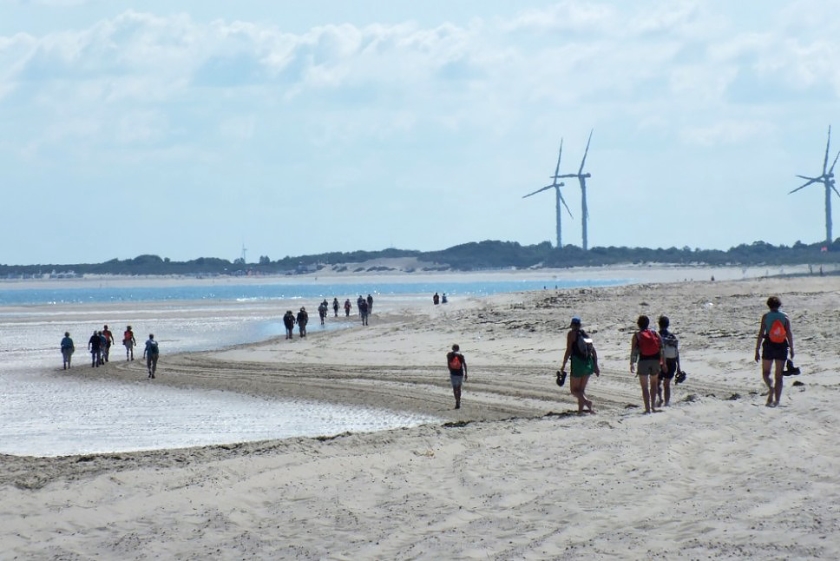Studying public acceptability of energy transition

How can residents of the Dutch provinces of Groningen and Zuid-Holland be involved in decision-making on regional energy strategies? This question is central to the new RESPECT research project of the University of Groningen researchers Goda Perlaviciute, Lorenzo Squintani and Linda Steg. They recently received a large NWO grant for this study. In addition to this research into the energy transition on a regional level, a major European study into the public acceptance of negative emission technologies, such as the capture and storage of CO2, will start soon.
Public resistance can be a serious barrier for implementing renewable energy projects, such as wind parks. Goda Perlaviciute from the Faculty of Behavioural and Social Sciences and Lorenzo Squintani from the Faculty of Law study whether and how engaging people in decision-making may lead to better and more acceptable energy projects. To study real-life public participation practices, Perlaviciute and Squintani have established the Like!Me Living Lab with multiple societal partners.
Regional energy strategies in the Dutch provinces of Groningen and Zuid-Holland
Building on their work in the Like!Me Living Lab, they have recently received a NWO grant (500.000 euro) for the project “RESPECT” to study how to engage the public in decision-making on regional energy strategies in the Dutch provinces of Groningen and Zuid-Holland. Perlaviciute, Squintani, and Linda Steg collaborate in this project with local governments, business associations, and knowledge institutes.
Public acceptability of controversial negative emission technologies, such as storage of CO 2
Besides renewable energy, other solutions are needed for the sustainable energy transition, such as carbon capture and storage. These so-called negative emission technologies remove CO2 from the atmosphere, thereby slowing climate change and its negative impacts. Perlaviciute and Steg have received EU funding to study public acceptability of these often highly controversial technologies. As part of the large project “NEGEM”, led by the VTT Technical Research Centre of Finland, Perlaviciute and Steg will lead a large-scale cross-cultural study of public acceptability of negative emission technologies. They will collaborate in this project with scholars from other disciplines, including climate scientists from the Potsdam Institute for Climate Impact Research.
More information:
| Laatst gewijzigd: | 02 juni 2023 14:30 |
Meer nieuws
-
16 april 2024
RUG ondertekent Barcelona Declaration on Open Research Information
De Rijksuniversiteit Groningen heeft de Barcelona Declaration on Open Research Information (Verklaring Open Onderzoeksinformatie) officieel ondertekend. Dit wordt gezien als een grote stap richting verantwoordelijke onderzoeksbeoordeling en open...
-
02 april 2024
Vliegen op houtstof
In Makers van de RUG belichten we elke twee weken een onderzoeker die iets concreets heeft ontwikkeld: van zelfgemaakte meetapparatuur voor wetenschappelijk onderzoek tot kleine of grote producten die ons dagelijks leven kunnen veranderen. Zo...
-
18 maart 2024
VentureLab North helpt onderzoekers op weg naar succesvolle startups
Het is menig onderzoeker al overkomen. Tijdens het werken vraag je je opeens af: zou dit niet ontzettend nuttig zijn voor de mensen buiten mijn onderzoeksveld? Er zijn allerlei manieren om onderzoeksinzichten te verspreiden. Denk bijvoorbeeld aan...

